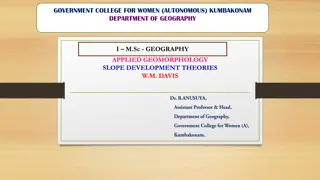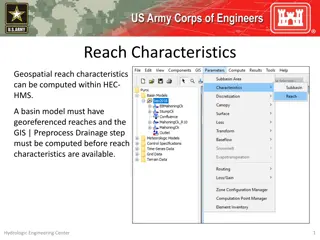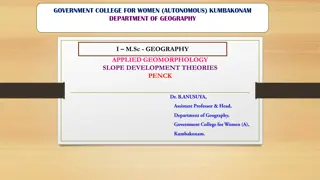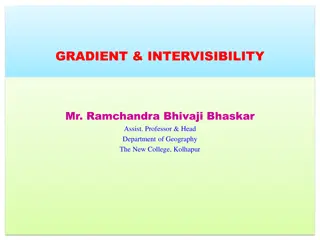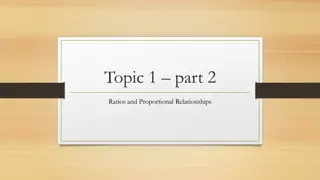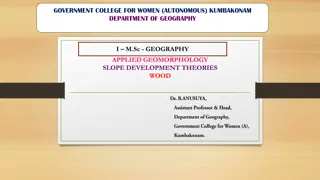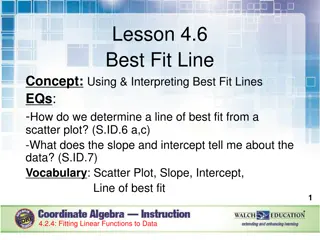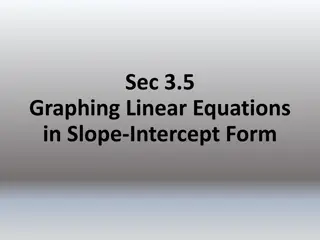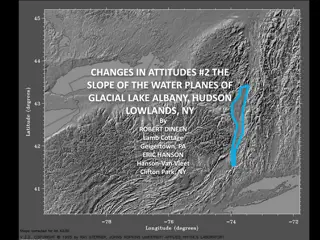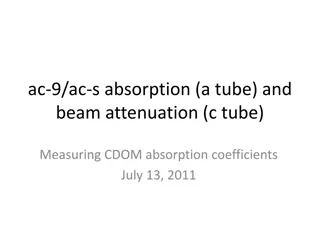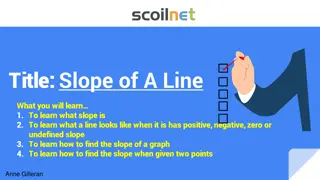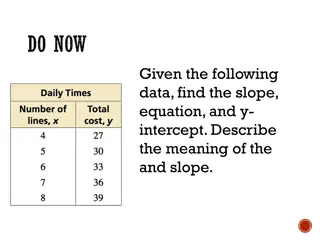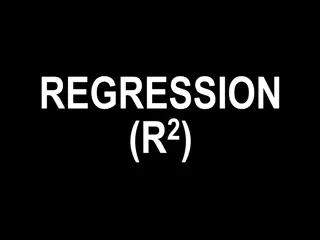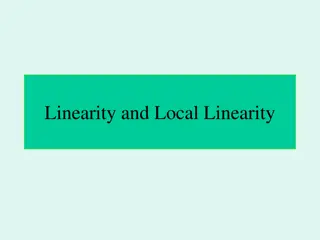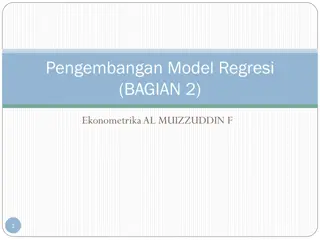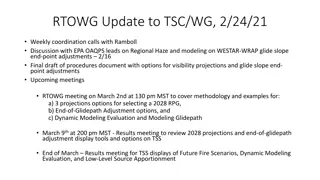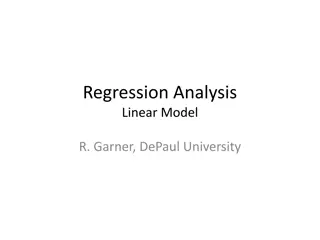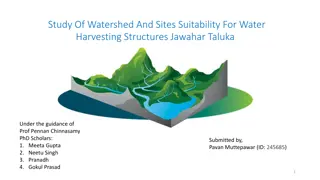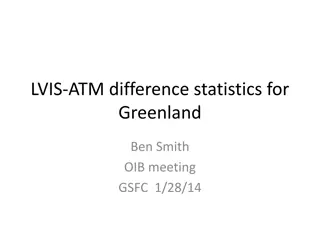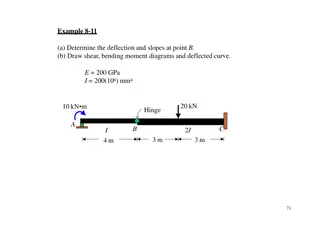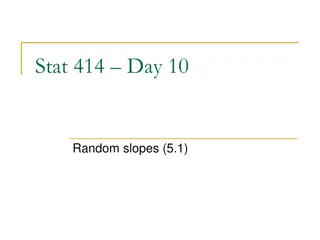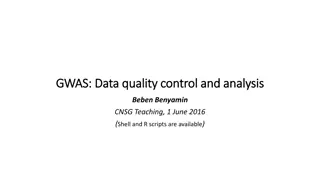Extreme Value Theory in Civil Engineering
Introduction to Extreme Value Theory (EVT) in civil engineering focusing on the analysis of extremes such as shear strength, slope stability, and load factors. The theory, exemplified by Emil Julius Gumbel, questions the likelihood of individual observations falling outside expected distributions. E
10 views • 49 slides
If you are looking for Creative Activities in South Slope
If you are looking for Creative Activities in South Slope, Think Talk Create is a vibrant and inspiring creative learning studio dedicated to nurturing and empowering learners of all ages in Sunset Park, Brooklyn. We believe that education should be an engaging and enjoyable journey, and we are pas
0 views • 6 slides
Slope Development Theories in Geography - Department of Geography, Government College for Women, Kumbakonam
Slope development in geography is categorized into primary and secondary slopes, formed by processes that either promote or decrease relief. This involves erosion, weathering, and deposition processes, influenced by factors like lithology, climate, tectonic movements, and vegetation cover.
1 views • 27 slides
Reach Characteristics in HEC-HMS Basin Modeling
Reach characteristics play a crucial role in hydrological modeling using HEC-HMS. Georeferenced reaches are essential for computing reach characteristics like slope, sinuosity, relief, and more. The process involves pre-processing drainage data before detailed reach characteristics can be obtained.
1 views • 5 slides
Slope Development Theories by Walther Penck in Geomorphology
Explore the Slope Development Theories by Walther Penck in Geomorphology, focusing on concepts like Pendiplanation, Pedimentation, and the relation between endogenic and exogenic forces in shaping landscapes. Learn about the evolution of landforms and the criticism of the Davisian theory of Erosion
1 views • 28 slides
Slope, Gradient, and Intervisibility in Geography
Explore the concepts of slope, gradient, and intervisibility in geography through detailed descriptions and visual representations. Learn about positive, negative, zero, and undefined slopes, the calculation of gradient, and the significance of understanding these aspects in various engineering and
0 views • 12 slides
Plane Failures in Rock Slopes
Plane failures in rock slopes are rare but significant, indicating sensitivity to changes in shear strength and groundwater conditions. Geometrical conditions must be met for such failures to occur, including specific alignments and interactions between the sliding plane and slope face. Analysis inv
0 views • 22 slides
Evolution of Hill Slopes: Penck's Slope Replacement Theory
Penck's slope replacement theory proposes that the angle of a hill slope decreases as gentler slopes replace steeper ones, leading to the concavity of the slope profile. The model explains how vertical erosion by streams and denudation shape hillslopes, causing them to retreat in a parallel manner.
0 views • 9 slides
Ratios, Proportional Relationships, and Slope in Math
Explore the concepts of ratios, proportional relationships, constant rate of change, and slope in mathematics. Learn how to find constant rates of change from tables and graphs, calculate slope using points on a line, and understand direct variation between two quantities. Dive into examples to gras
0 views • 16 slides
Slope Development Theories in Applied Geomorphology
Slopes are formed through different processes as described by Wood's slope development theories, such as the Four Unit Slope Model and the 9-Unit Slope Model. These models illustrate various manifestations of slope profiles based on factors like rock composition and water movement. Different slope t
0 views • 10 slides
Best Fit Lines in Data Analysis
Exploring the concept of best fit lines in data analysis, this lesson covers how to determine a line of best fit from a scatter plot, interpret the slope and intercept of the line, and fit linear functions to data points. Through examples and steps, students learn to graph data, find the equation of
1 views • 36 slides
Structural Analysis and Design for Signal and Lighting Systems
Florence Hutcheson Lee Sewell, PE, SE conducted an in-depth structural analysis known as SALSA to examine wire span, mast arm, and high mast structures. This comprehensive study, initiated in 2007, aimed to enhance the geotechnical evaluations of pole bases to meet current standards. Through innovat
2 views • 18 slides
Linear Equations and Graphs
Exploring linear equations in slope-intercept form, the concept of slope, graphing techniques, and real-world applications. Learn about positive and negative slopes, horizontal and vertical lines, slope-intercept form, and interpreting graphs. Examples guide you through finding slope, graphing lines
1 views • 8 slides
Regression Lines for Predicting English Scores
Learn how to utilize regression lines to predict English scores based on math scores, recognize the dangers of extrapolation, calculate and interpret residuals, and understand the significance of slope and y-intercept in regression analysis. Explore the process of making predictions using regression
0 views • 34 slides
Examples of Data Analysis Techniques and Linear Regression Models
In these examples, we explore data analysis techniques and linear regression models using scatter plots, linear functions, and residual calculations. We analyze the trends in recorded music sales, antibiotic levels in the body, and predicted values in a linear regression model. The concepts of slope
0 views • 11 slides
The Slope of Glacial Lake Albany in Hudson Lowlands, NY
Explore the changing attitudes towards the slope of the water planes of Glacial Lake Albany in Hudson Lowlands, NY through various research findings and references from notable researchers such as Dineen, Hanson, and others. The physiographic provinces, slope measurements, shapes, and timings of ice
0 views • 34 slides
Pre-Algebra PSSA Practice Test Slides and Rainfall Measurement Analysis
In this content, you will find a series of slides for a PSSA practice test in Pre-Algebra. Additionally, it includes a scenario where Bill measures rainfall using a rain gauge, requiring analysis of rainfall data and the creation of a slope-intercept equation. The scenario also asks to interpret the
0 views • 16 slides
Different Roof Types: Advantages and Disadvantages
Flat roofs have a slight slope and are ideal for hot climates with less rain. They offer space for terraces and are easier to build but require complex waterproofing. Pitched roofs have a steeper slope, higher construction costs, and provide more space underneath. The roof slope for pitched roofs de
0 views • 10 slides
Comparison of CDOM Absorption Coefficients Using Different Filters and Instruments
This study conducted on July 13, 2011, analyzed the absorption coefficients of CDOM using various filters and instruments in different sample sources like open ocean, dockside, and Biscay pond dilution series. The comparison included measurements with ac-9 and ac-s filters of varying sizes, along wi
0 views • 11 slides
Cut Slope Design and Topographic Surveying
Geotechnical engineers and engineering geologists play crucial roles in designing earth structures based on geological data. This involves assessing and forecasting hazards, making slope design recommendations, and more. The process includes topographic surveys, rock mass characterization, photogram
0 views • 11 slides
Slope: Graphing Lines and Finding Slope
Learn about the concept of slope, how to identify positive, negative, zero, and undefined slopes in a graph, and methods to calculate slope using rise over run or two points. Get insights into graphical representation of slopes and practical tips to determine slope values accurately.
0 views • 15 slides
Linear Equations and Slope Interpretation in Algebra
Understand linear equations, slopes, and intercepts in algebraic models through examples involving calculations, interpretations of slope meaning, y-intercepts, and x-intercepts in various scenarios. Explore how to compare costs, determine points of intersection, and analyze the implications of slop
0 views • 8 slides
Regression Analysis in Statistical Research
Regression analysis, specifically focusing on the R2 statistic, is a method used to examine the relationship between two variables at an interval/ratio level. It evaluates how well a line fits the data and measures the strength of the relationship between independent and dependent variables. Being s
0 views • 5 slides
Bicycle Trip Assignment: Understanding Energy Consumption for Travel Cost Optimization
Analyzing the energy consumption as a variable for travel cost on bicycle trips using a model structure that includes factors like gender, age, athleticism, slope, mass, wind resistance, and more. The study also explores the impact of rider proficiency levels and physiological conditions on energy e
0 views • 17 slides
Linear Functions: Slope and Changes in Variables
Linear functions and their relationship to slope are explored in this content. Understanding how changes in the independent variable affect the dependent variable is key to interpreting linear relationships. Through visual representations and explanations, this content illustrates the concepts of li
0 views • 23 slides
Structural Changes in Time Series Data with Chow Test
Structural changes in time series data can occur due to various external factors or policy changes, impacting the relationship between variables. The Chow Test helps identify if there are significant differences in intercepts or slope coefficients between different time periods in regression analysi
0 views • 15 slides
Update on Modeling and Coordination Discussions
Weekly coordination calls with Ramboll and discussions with EPA OAQPS leads focused on Regional Haze and modeling adjustments. Final draft of procedures document with visibility projections and glide slope adjustments. Upcoming RTOWG meetings covering methodology, projections, and modeling evaluatio
0 views • 5 slides
Regression Analysis in Data Science
Explore the principles of regression analysis in data science, focusing on bivariate regression and linear models. Learn how to write the equation of a line to describe relationships between variables and assess the goodness of fit using scatterplots, correlation coefficients, determination coeffici
0 views • 29 slides
Pressure Surfaces and Environmental Lapse Rates in Meteorology
This content discusses how pressure surfaces slope from low to high latitudes due to temperature changes, calculating the slope of pressure surfaces at different latitudes, determining wind speed based on slope, computing environmental lapse rates, and analyzing stability using dry and moist adiabat
0 views • 12 slides
Math Slope Unit Review by Mrs. Gabel
Explore various topics related to slope, equations, domain, range, and different forms of equations in this comprehensive unit review hosted by Mrs. Gabel. Learn about calculating slope, determining if a relation is a function, writing equations in different forms, and more through clear explanation
0 views • 22 slides
Mars 2020 Elevation Constraints and Geological Features
The content showcases images and information related to the exploration of Mars, focusing on the Nili Fossae Trough site and the unique geological features present. It highlights the diverse materials discovered, elevation challenges, slope characteristics, and the composition of ancient Martian ter
0 views • 32 slides
Learn About Iupiaq Language and North Slope Villages
Explore the Iupiaq language with its alphabet, vowels, diphthongs, and common phrases for introducing yourself. Discover the names of North Slope Iupiaq villages and learn how to ask for names and family members. Immerse yourself in the rich cultural heritage of the Iupiaq people.
0 views • 4 slides
Study of Watershed and Sites Suitability for Water Harvesting in Jawhar Taluka
This project aims to address water scarcity in Jawhar Taluka by studying watershed characteristics and identifying suitable sites for water harvesting structures. The methodology includes DEM analysis using QGIS Grass, watershed delineation, stream extraction, and site suitability assessment based o
0 views • 4 slides
Analyzing ATM-LVIS Difference Statistics for Greenland
The presentation discusses the analysis of ATM-LVIS difference statistics for Greenland, highlighting proposed processing refinements that are expected to have a minimal impact. The data editing process for ATM and LVIS measurements, histogram of slope-corrected differences, differences by slope and
0 views • 10 slides
Hope on the Slope: The Power to Change - A Radical Energy Technology Presentation
Discover "Hope on the Slope" by Jackie Carpenter, a novel exploring a future of economic decline with a message of hope and happiness. The presentation dives into new radical energy technology through the lens of changing politics, belief systems, culture, and storytelling paradigms. Experience the
0 views • 37 slides
Structural Analysis: Beam Deflection and Slope Calculation
In this structural analysis problem, we are tasked with determining the deflection and slopes at point B of a loaded beam. The calculations involve applying the moment-area method and the conjugate-beam method to create shear, bending moment diagrams, and the deflected curve. Theorems related to slo
0 views • 18 slides
Pre-Algebra Slope Scavenger Hunt Check-Up Assignment
Engage in an independent pre-algebra assignment focusing on slope through a scavenger hunt check-up. Numbered questions from 1 to 17 require students to answer with work shown, utilizing provided graphs for reference. Follow instructions carefully to complete the task successfully.
0 views • 19 slides
Random Slopes in Data Analysis
Exploring the impact of grand-mean and group-mean centering on intercept interpretation with random slopes, as well as variations in slope/intercept covariance. Differentiating between fixed and random coefficients, and the effects of adding group mean as a Level 2 variable. Delving into within vs.
0 views • 21 slides
GWAS: A Brief Overview of Genetic Association Studies
GWAS, or Genome-Wide Association Studies, are a method used to map genes associated with traits or diseases by analyzing genetic markers throughout the genome. This process involves statistically testing the association between SNPs and traits using regression or chi-squared tests in a hypothesis-fr
0 views • 19 slides
Equations in Two Variables
Explore the creation and graphing of linear equations in two variables to represent relationships between quantities. Understand the concept of slope, y-intercept, and the slope-intercept form of equations. Practice creating tables of values, writing algebraic equations, and graphing on coordinate a
0 views • 22 slides


